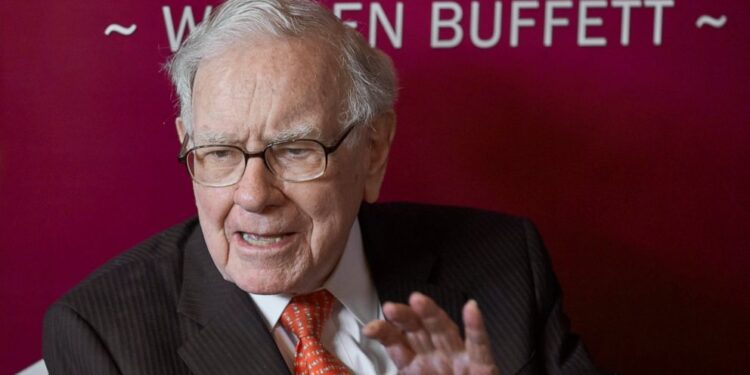After more than seven decades at the helm of global capital markets, Warren Buffett has formally announced his retirement from day-to-day operations at Berkshire Hathaway, marking the close of one of the most extraordinary careers in modern finance. At 94, Buffett steps away from an empire he built from the ground up—leaving behind a legacy of disciplined investing, ethical capitalism, and philanthropic ambition rarely matched in business history.
The announcement came in his much-anticipated annual letter to shareholders, a fixture of global financial calendars. Calmly written in his trademark plainspoken style, Buffett confirmed that Greg Abel, vice-chairman overseeing non-insurance operations, would assume full operational leadership. “Berkshire is in good hands,” Buffett wrote, signalling both confidence and finality.
From textile mill to financial powerhouse
Warren Buffett’s story is as improbable as it is emblematic of twentieth-century American capitalism. In 1965, he acquired control of Berkshire Hathaway—a struggling textile manufacturer—and gradually pivoted it into a holding company. Over the decades, he orchestrated a series of famously shrewd investments in companies like Coca-Cola, American Express, Apple, and Geico, earning Berkshire a place among the world’s largest corporations, with a current market capitalisation exceeding $850 billion.
Unlike many of his contemporaries, Buffett resisted the allure of short-termism. He eschewed fads and favoured fundamentals, repeatedly emphasising that time in the market beats timing the market. His strategy of buying high-quality companies at reasonable prices and holding them indefinitely became gospel for value investors around the world.
His disciplined stewardship enabled Berkshire Hathaway to deliver a compound annual gain of 19.8% from 1965 to 2023, compared to 9.9% for the S&P 500 with dividends included—effectively multiplying shareholder capital more than 3,700,000% over his tenure.
Legacy of integrity in a changing financial circus
Buffett’s retirement comes at a time when the financial world is increasingly shaped by algorithmic trading, digital assets, and speculative fervour. Yet for much of the past century, Buffett provided a voice of reason amid the noise—a kind of moral centre in a circus of excess.
In contrast to the leverage-heavy, risk-on approach embraced by many hedge funds and tech-forward trading firms, Buffett’s methods were cautious, almost stoic. He avoided debt, refused to split Berkshire’s Class A shares, and famously sat on enormous piles of cash during periods of market exuberance. “Be fearful when others are greedy,” he once warned—a maxim often ignored by those who dismissed his style as outdated.
Buffett’s aversion to hype often paid off. He notably steered clear of the dot-com bubble in the late 1990s and was among the few major investors to deploy capital aggressively during the 2008 financial crisis, striking lucrative deals with Goldman Sachs, Bank of America, and others when fear had frozen the system.
A philosophy rooted in trust and patience
Few investors have cultivated the kind of trust Warren Buffett enjoyed. Each year, thousands would travel to Omaha, Nebraska, for the Berkshire Hathaway annual meeting—known informally as the “Woodstock for capitalists”—to hear Buffett and his long-time partner Charlie Munger (who died in 2023 at age 99) speak candidly about markets, business, and life.
Their public image was carefully consistent: plain suits, modest salaries, and humility in the face of success. Buffett never relocated to Wall Street, kept his personal expenses low, and reportedly still lives in the same house he bought in 1958. For many, this persona was more than folksy charm—it was a strategic embodiment of long-term thinking.
A second fortune given away
Perhaps the most remarkable aspect of Buffett’s career is what he chose not to keep. With a net worth that once exceeded $120 billion, Buffett committed in 2006 to giving away over 99% of his wealth to philanthropic causes. To date, more than $55 billion has already been distributed, primarily through the Bill & Melinda Gates Foundation and four family foundations.
In 2010, Buffett and Gates co-founded the Giving Pledge, encouraging billionaires worldwide to commit the majority of their wealth to charity. The movement has since attracted over 240 signatories, reshaping the landscape of global philanthropy and marking Buffett as not just a capital allocator but also a civic moralist.
In his own words: “Were we to use more than 1% of my claim checks [his term for money] on ourselves, neither our happiness nor our well-being would be enhanced. In contrast, that remaining 99% can have a huge impact if disbursed properly.”
The future of Berkshire—and Buffett’s wisdom
Berkshire’s future without Buffett remains an open question. Greg Abel is widely regarded as a capable executive with deep knowledge of the company’s decentralised structure, but he inherits the unenviable task of stewarding a company whose culture is synonymous with a single man. Analysts expect a continued focus on Berkshire’s core pillars: insurance, energy, infrastructure, and a disciplined acquisition strategy.
Meanwhile, Buffett’s annual letters, interviews, and aphorisms are likely to be studied for decades, perhaps centuries, as guides not only to investing, but to life itself.
As the curtain falls on Warren Buffett’s active role, the global financial stage feels a little less anchored—but perhaps more inspired. In a marketplace often driven by speed and speculation, Buffett reminded the world of the value of patience, the power of simplicity, and the enduring returns of trust.
newshub finance




Recent Comments